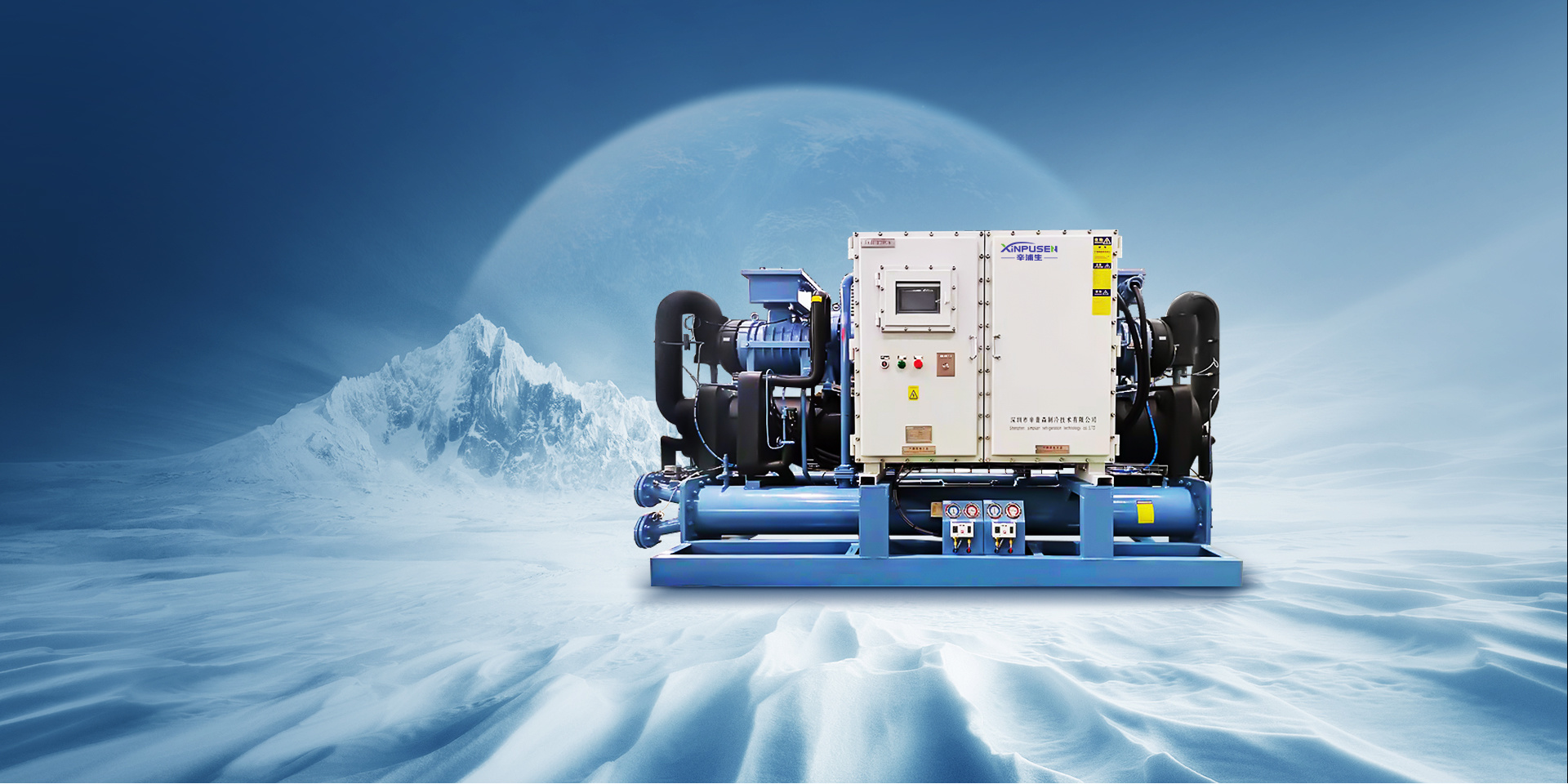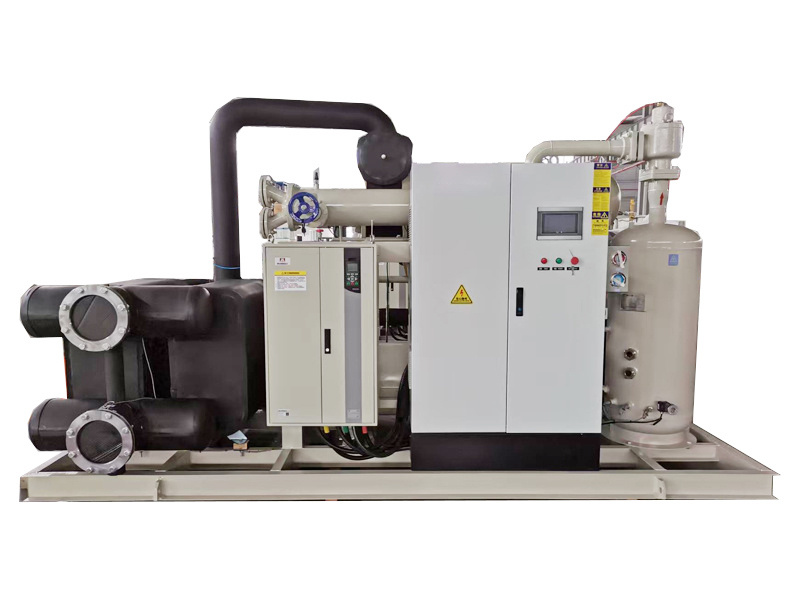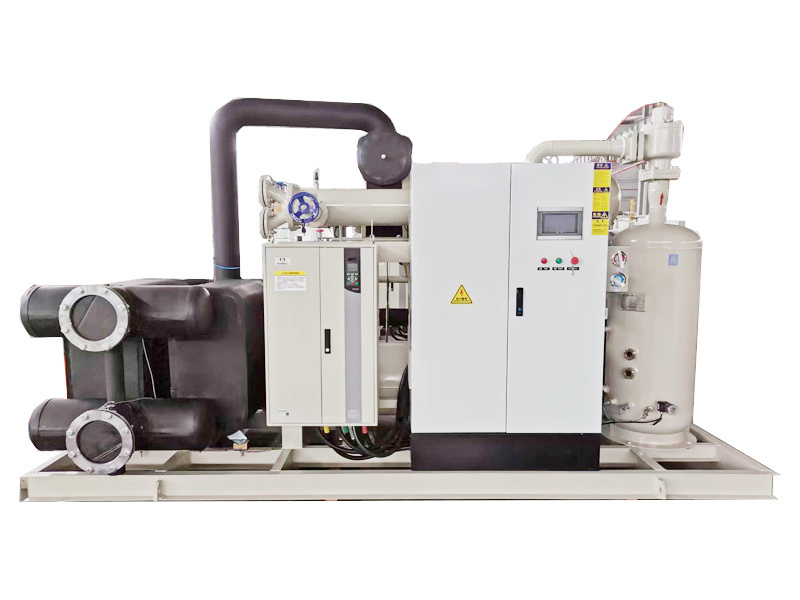Understanding Cryogenic Chiller Systems: A Comprehensive Guide
2025-06-04 14:20
Cryogenic chiller systems are specialized refrigeration units designed to achieve extremely low temperatures, typically below -150°C (-238°F). These systems are integral to various industrial applications, particularly in fields such as pharmaceuticals, semiconductor manufacturing, and scientific research, where precise temperature control is crucial for product integrity and process efficiency.
The primary function of a cryogenic chiller system is to remove heat from a designated space or substance, thereby maintaining a low-temperature environment. These systems utilize cryogenic fluids, such as liquid nitrogen or helium, as refrigerants to enhance their cooling capabilities. The refrigeration cycle in a cryogenic chiller typically involves compression, condensation, expansion, and evaporation, which work together to achieve the desired low temperatures.
One of the key advantages of cryogenic chiller systems is their ability to provide stable and consistent cooling performance. This reliability is essential in applications where temperature fluctuations can lead to significant product loss or compromised results. For example, in the pharmaceutical industry, maintaining specific temperatures during the storage and transport of biologics is critical to ensure their efficacy and safety.
Moreover, cryogenic systems are known for their energy efficiency. With advancements in technology, many modern cryogenic chillers are designed to optimize power consumption while delivering superior cooling performance. This efficiency not only reduces operational costs but also minimizes the environmental impact associated with energy use.
In addition to their efficiency, cryogenic chiller systems offer versatility across various applications. They can be used in laboratory settings for cryopreservation, in industrial processes for material testing, or even in food processing to preserve quality and extend shelf life. Their adaptability makes them a crucial asset in many sectors.
Another important aspect to consider is the maintenance and operation of cryogenic chiller systems. Due to the extreme temperatures involved, these systems require specialized knowledge for installation and upkeep. Regular maintenance is paramount to ensure optimal performance and longevity, as any malfunction could lead to significant downtime and financial loss.
In conclusion, cryogenic chiller systems play a vital role in industries that demand precise temperature control and efficient cooling solutions. Their ability to operate at extremely low temperatures, coupled with energy efficiency and versatility, makes them indispensable in various applications. Understanding the operational principles and benefits of these systems can help businesses make informed decisions when considering their cooling needs. Embracing cryogenic technology can lead to enhanced productivity, product quality, and ultimately, successful outcomes in a highly competitive industrial landscape.
The primary function of a cryogenic chiller system is to remove heat from a designated space or substance, thereby maintaining a low-temperature environment. These systems utilize cryogenic fluids, such as liquid nitrogen or helium, as refrigerants to enhance their cooling capabilities. The refrigeration cycle in a cryogenic chiller typically involves compression, condensation, expansion, and evaporation, which work together to achieve the desired low temperatures.
One of the key advantages of cryogenic chiller systems is their ability to provide stable and consistent cooling performance. This reliability is essential in applications where temperature fluctuations can lead to significant product loss or compromised results. For example, in the pharmaceutical industry, maintaining specific temperatures during the storage and transport of biologics is critical to ensure their efficacy and safety.
Moreover, cryogenic systems are known for their energy efficiency. With advancements in technology, many modern cryogenic chillers are designed to optimize power consumption while delivering superior cooling performance. This efficiency not only reduces operational costs but also minimizes the environmental impact associated with energy use.
In addition to their efficiency, cryogenic chiller systems offer versatility across various applications. They can be used in laboratory settings for cryopreservation, in industrial processes for material testing, or even in food processing to preserve quality and extend shelf life. Their adaptability makes them a crucial asset in many sectors.
Another important aspect to consider is the maintenance and operation of cryogenic chiller systems. Due to the extreme temperatures involved, these systems require specialized knowledge for installation and upkeep. Regular maintenance is paramount to ensure optimal performance and longevity, as any malfunction could lead to significant downtime and financial loss.
In conclusion, cryogenic chiller systems play a vital role in industries that demand precise temperature control and efficient cooling solutions. Their ability to operate at extremely low temperatures, coupled with energy efficiency and versatility, makes them indispensable in various applications. Understanding the operational principles and benefits of these systems can help businesses make informed decisions when considering their cooling needs. Embracing cryogenic technology can lead to enhanced productivity, product quality, and ultimately, successful outcomes in a highly competitive industrial landscape.
Previous: Unlocking Energy Efficiency: The Comprehensive Benefits of Variable Frequency Chillers
More Information
2025-10-20
china double-stage low temperature chiller
Discover the ultimate cooling solution with our advanced Double-Stage Low Temperature Chiller, designed for applications requiring extreme precision and power. This specialized equipment utilizes a sophisticated two-stage refrigeration cycle to deliver outstanding performance where it matters most
2025-10-20
Understanding Double-Stage Low Temperature Chillers: Efficiency and Applications
Double-stage low temperature chillers represent a vital component in the realm of industrial refrigeration, particularly for applications requiring precise cooling at lower temperatures. These chillers are designed to operate effectively in environments where standard cooling systems may falter, providing a reliable solution for industries such as pharmaceuticals, food processing, and chemical man
2025-10-13
Understanding the Benefits of a Double-Stage Low Temperature Chiller: A Comprehensive Guide
Understanding the Benefits of a Double-Stage Low Temperature Chiller
Table of Contents
What is a Double-Stage Low Temperature Chiller?
How Does a Double-Stage Low Temperature Chiller Work?
Key Benefits of Double-Stage Low Temperature Chillers
1. Energy Efficiency
2. Enhanced Performance
3. Reduced Operational Costs
4. Better Env
2025-10-06
Understanding the Benefits and Functionality of Double-Stage Low Temperature Chillers
Double-stage low temperature chillers are sophisticated cooling systems that provide efficient temperature control across various industrial applications. These chillers are designed to cool fluids to significantly lower temperatures than typical single-stage systems, making them indispensable in processes that require precise thermal management. In this article, we will delve into the functionali
2025-10-20
china double-stage low temperature chiller
Discover the ultimate cooling solution with our advanced Double-Stage Low Temperature Chiller, designed for applications requiring extreme precision and power. This specialized equipment utilizes a sophisticated two-stage refrigeration cycle to deliver outstanding performance where it matters most









 CN
CN EN
EN


